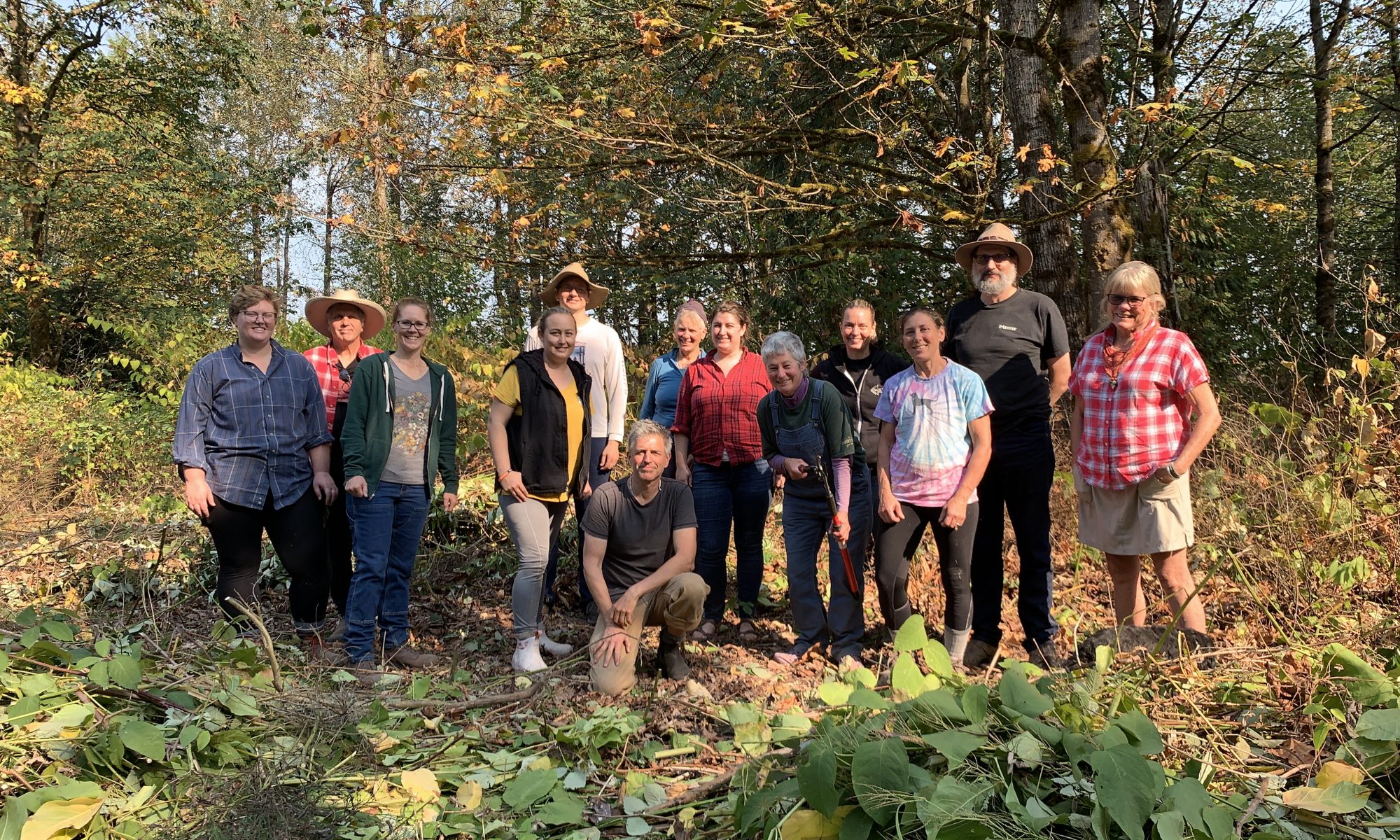Join Us At A Bio-cultural Restoration Field Station
Join us for a weekend camping on the Lower Skykomish River, near Monroe Washington. We will learn about native plants, environmental horticulture, and river restoration, restore forests, and develop forest gardens in neglected riparian forests. We operate as volunteers of the Snohomish Conservation District, hosted by the Washington Farmland Trust, Werkhoven Dairy, and The Tulalip Tribes of Washington (the future owners of these riparian parcels). But foremost we will be developing a prototype for a bio-cultural restoration field station—a mix of learning, teaching, restoration, and relaxation. We are hoping you might help develop our Ecosystem Guild.
The Next Field Station Is
June 27-29
With an additional field station in November

WHAT IS THE ECOSYSTEM GUILD? – The guild is a volunteer network that collaborates to tend our ecological commons. We work to build local groups that can do this work because tending ecosystems will require many many people motivated by their values and interests and developing their skills and abilities.
WHY MIGHT I BE INTERESTED IN RESTORATION FIELD STATIONS? – You might be a good fit for bio-cultural restoration field stations because you: 1) enjoy building community living outdoors using appropriate technology; 2) are passionate about restoring ecosystems both as human habitat and for the benefit of a greater-than-human community of life; 3) want to explore how to cultivate cultural infrastructure that is more capable of ecosystem stewardship; 4) are interested in developing practical restoration and ecosystem tending skills; 5) are curious about a wide range of viewpoints and want to cultivate a prosocial environment around restoration; and 6) are willing to follow the lead of a site steward and to be a gracious guest.
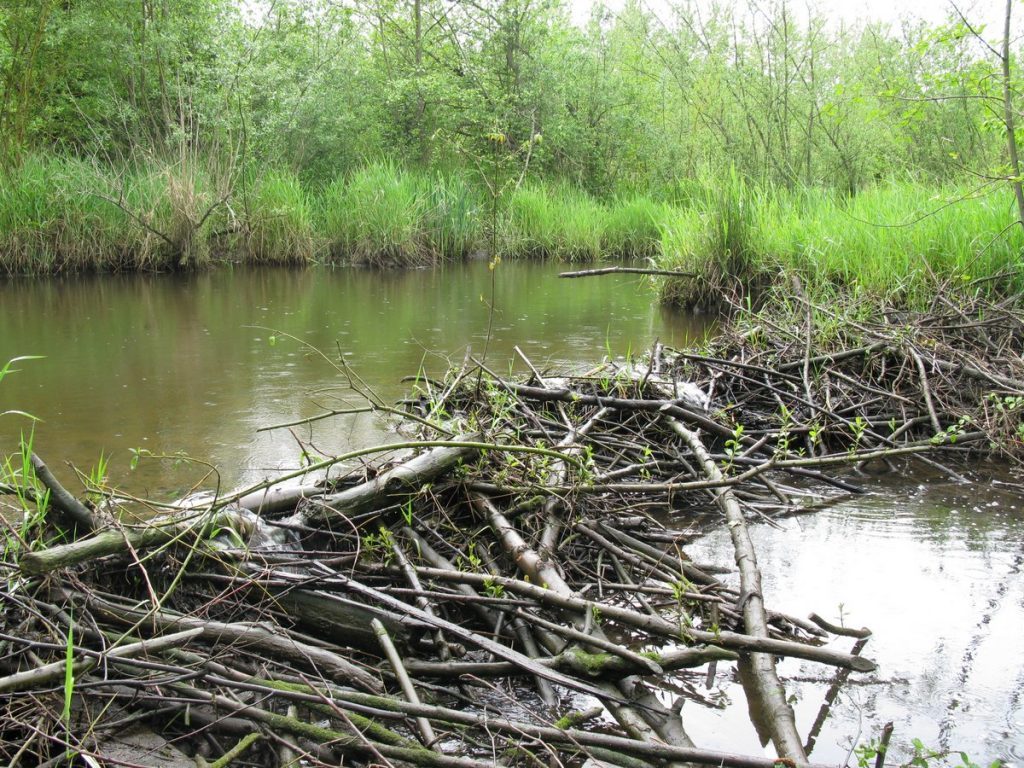
WHAT DOES AN ECOSYSTEM GUILD DO AT A FIELD STATION? – Field stations assess, design, install, tend, and monitor restoration sites. We live on-site while we work, to build a deeper and more nuanced understanding of ecosystems. Field stations aim to be an experiment in a regenerative, place-based, egalitarian culture. You and your friends respond to an invitation from a site steward with access to a piece of our ecological commons. For the purpose of prototyping on the Skykomish River the Snohomish Conservation District is our first Institutional Sponsor. We envision our guild as a blend of professional training, craft festival, skill exchange, Rotary Club, and conservation corps, all with a relaxing work schedule in a beautiful setting.
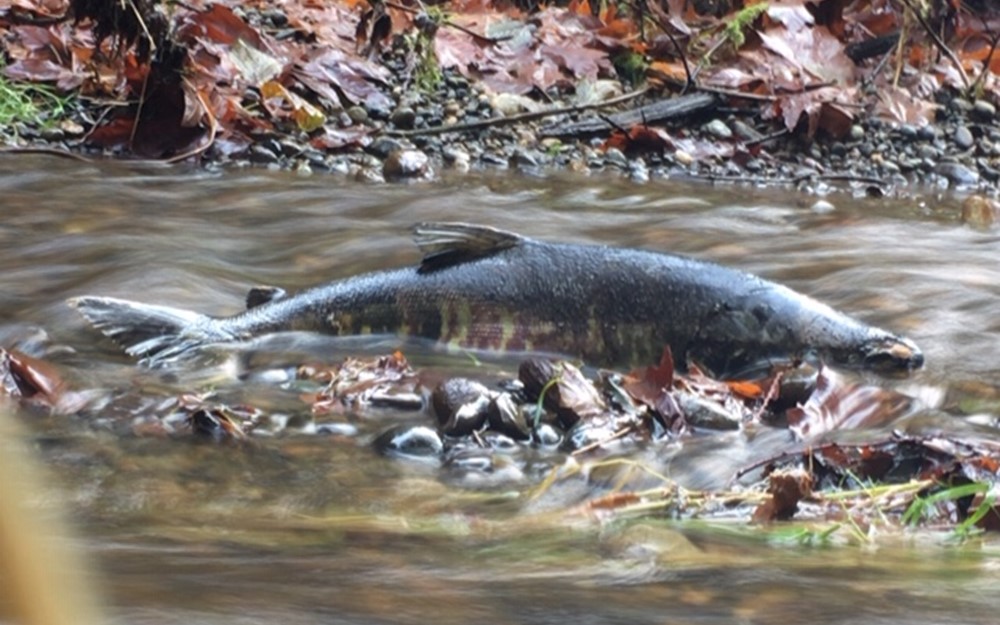
WHY FIELD STATIONS? – We suspect that the root of our ecological problems (and a fair number of social problems) is baked into our culture, which is in ecological overshoot—this is likely to end poorly. We suspect a viable human culture will regenerate and tend ecosystems as part of its lifestyle. We propose to step away from our busy industrial and institutional lives, live simply in public trust landscapes, and restore them. We can then back-engineer the traditions and infrastructures necessary to do the work of biocultural restoration gracefully and pleasurably so that learning ecological restoration in a community becomes a cultural birthright.
WHAT IS BIOCULTURAL RESTORATION? Biocultural restoration is a term coined by the Center for Native Peoples and the Environment at the State University of New York and is the science and practice of restoring not only ecosystems but also human and cultural relationships to place, such that cultures are strengthened and revitalized alongside the lands with which they are inextricably linked.
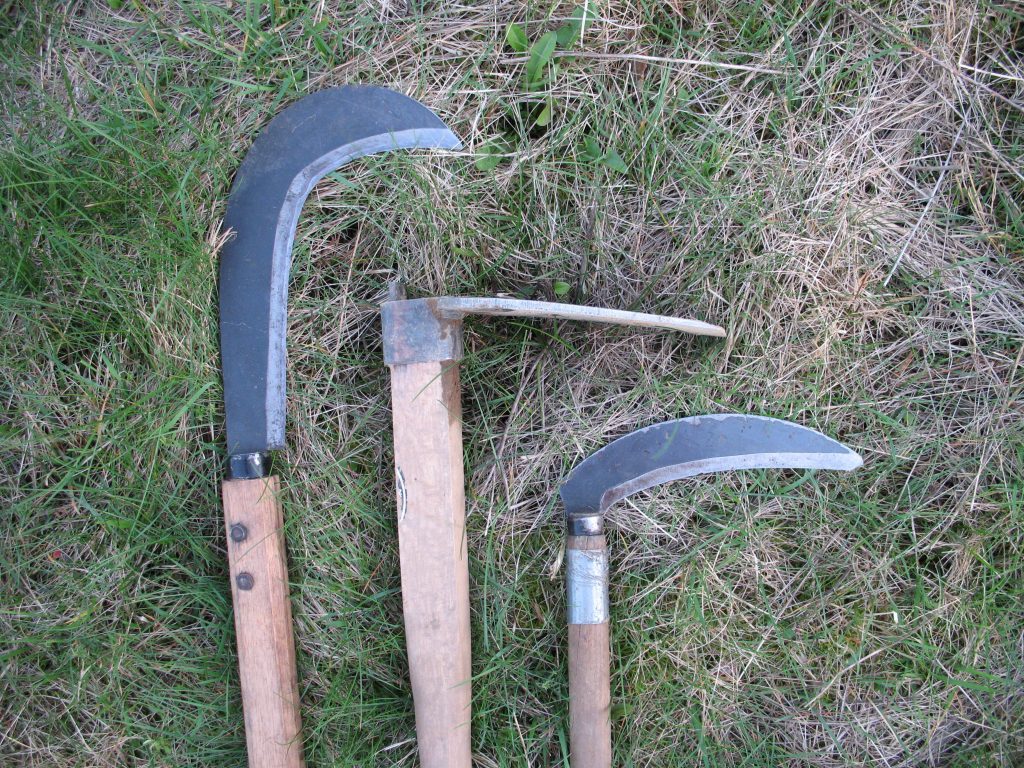
WHAT HELP DO YOU NEED? We conduct site assessments, design, and preparation for winter planting, develop our guild culture, and enhance infrastructure. We have three roles that anchor the field station: 1) community stewards bring people together, 2) camp stewards create a nice place to stay, 3) tending stewards guide our ecological efforts. Our culture is inclusive and flexible, our infrastructure is bootstrapped, and we learn by doing. We hope to expand from a small experiment to a large guild at multiple sites, supplied with plants and working under interesting restoration and stewardship agreements. We intend to build a self-replicating system that is self-organizing and that both coexists with and complements our ecosystem restoration industry.
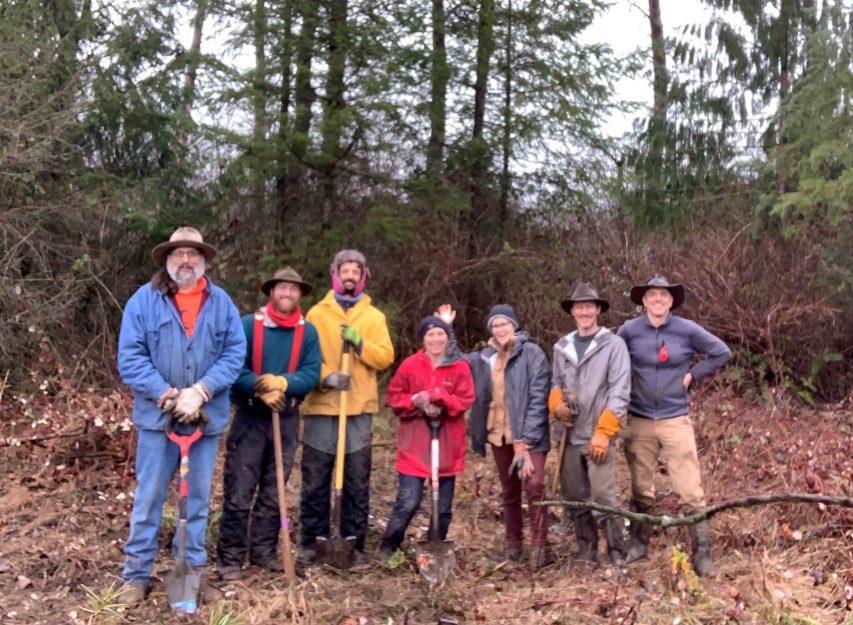
WHAT HAPPENS AT CAMP? We work for around 4 hours in the morning based on a work plan organized by tending stewards implementing a stewardship plan in alignment with the seasons. We study plant communities, soils, and hydrology in the Lower Skykomish Riverscape and refine restoration designs while developing places to gather, eat, and sleep on site. In the afternoon we trade ideas and crafts, design camp culture, and take care of ourselves and each other. We explore camping strategies such as the use of renewable fuels and composting waste that minimize both embedded and operating energy use and maximize reliance on local resources. This is a participatory experiment. We want people to feel safe. We have clear agreements and define the responsibilities of all parties before camp as part of an Ecosystem Guild Handbook.
WHAT NEXT? – Follow the link below to sign up for a field station. Each field station lasts from Friday afternoon to Sunday afternoon (with an option to camp until Monday morning). During startup, groups are largely self-provisioning, but with access to non-potable water and sanitation. Our goal during these initial events is to make it simple and easy to just show up so we can talk and plan around the campfire, and design an ecosystem guild.
Learn more about biocultural restoration field stations and the guild vision
Ask a question on our Facebook Group
Learn more about our vision for regenerative riverscape agroforestry in this 16-minute video:

